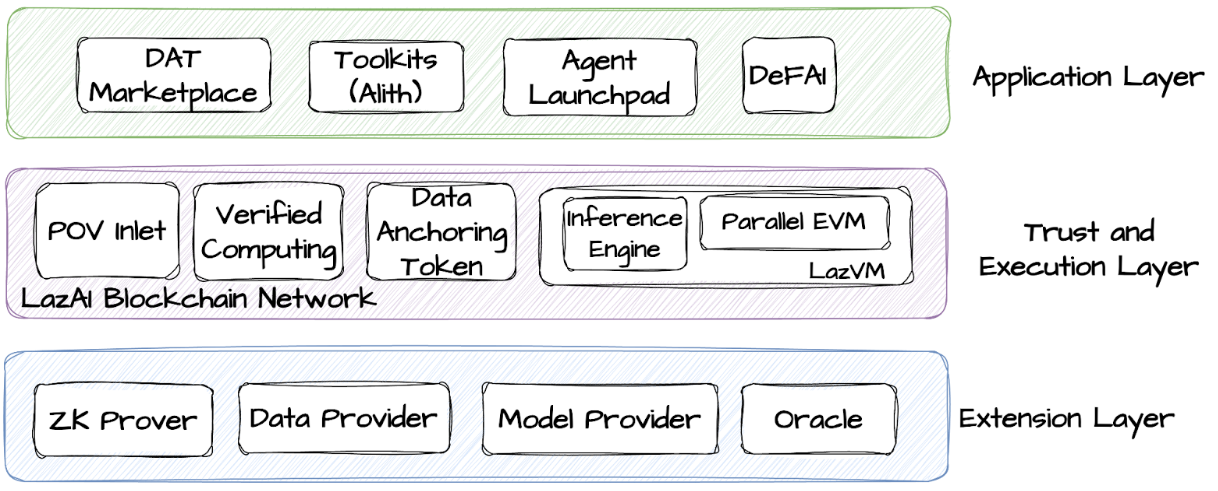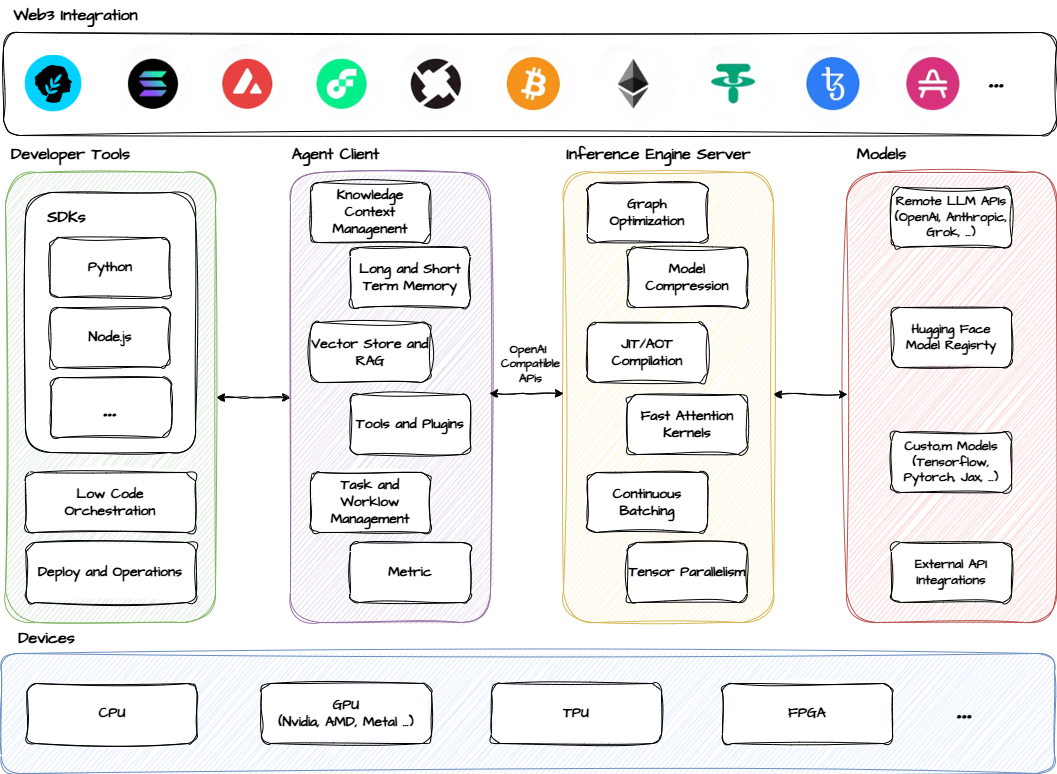Problem Landscape
The year 2025 is poised to be a watershed moment, heralded as the ‘Year of the AI Agent,’ where the convergence of AI and Web3 is redefining the boundaries of technological innovation. At the core of this transformation stands Alith, a groundbreaking framework engineered to address fundamental AI challenges, establishing itself as an indispensable tool at this critical intersection of technologies.
Why are we confident in this vision? And how do we foresee the future within the AI + Web3 paradigm through the lens of the AI Agent Framework?
The Problem Landscape
The rapid advancement of AI technologies has illuminated critical challenges within centralized AI ecosystems. Faced with both macro and micro challenges in the age of AI, we cannot afford to stand idly by.
Macro-Level Challenges in the AI Ecosystem
Data Sovereignty and Accessibility: Centralized platforms often monopolize access to data and resources, creating barriers for small-to-medium developers and limiting innovation.
Privacy Concerns: Users lack control over their data, leading to privacy breaches and unverified data usage.
Resource Inefficiency: Current models struggle with high inference costs, low efficiency, and limitations in accessing non-public data.
Limited Decentralization: Governance models skew toward centralized authorities, resulting in opaque decision-making and inequitable profit distribution.
Micro-Level Challenges: Usability of Agent Tools
Complexity: Agent tools often demand technical expertise, limiting accessibility for non-developers. Customization options are cumbersome and not intuitive.
Performance Bottlenecks: High computational costs and low responsiveness reduce the efficiency and scalability of current agent frameworks.
Fragmentation: Isolated ecosystems make integration difficult, leading to disjointed workflows and inconsistent user experiences.
Lack of Web3 Integration: Many frameworks fail to leverage blockchain’s transparency and interoperability, missing opportunities for innovation in decentralized AI applications.
These problems hinder innovation and limit the participation of developers and developers-to-be from diverse backgrounds in the development of AI technology. This highlights the belief that many ordinary individuals will transition into developers, joining the wave of AI and Web3 innovation.
To address these issues, we have launched LazAI — a decentralized AI platform dedicated to building an open, transparent, high-performance, secure, and inclusive AI ecosystem.
What is LazAI and Alith
Alith is a decentralized AI agent framework tailored to harness the capabilities of the LazAI -a decentralized AI platform dedicated to building an open, transparent, high-performance, secure, and inclusive AI ecosystem. LazAI solves AI’s data alignment problem with novel technologies, from chaining Data Anchoring Tokens (DATs) to form a blockchain to self-contained iDAOs for entities, enabling composable open networks for AI and Web3 applications. On the LazAI platform, AI developers, data providers, and other stakeholders can collaborate through integrated development tools to jointly create high-quality AI assets. These assets can be used for further development or traded and shared within the platform. LazAI uses blockchain technology to ensure that all interactions are transparent and tamper-proof, with clear ownership and fair profit distribution for contributors.

Alith combines cutting-edge performance optimization with robust Web3 integration, addressing critical issues such as data sovereignty, efficient inference, and decentralized collaboration. By leveraging blockchain technology, Alith ensures transparent data governance and fair resource allocation, empowering developers and contributors within a decentralized AI ecosystem. Its cross-language SDKs for Python, Rust, and Node.js, alongside features like low-code orchestration and seamless deployment, make it both developer-friendly and highly scalable.

Last updated

